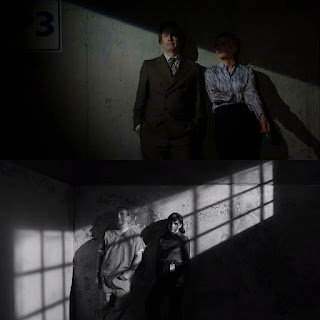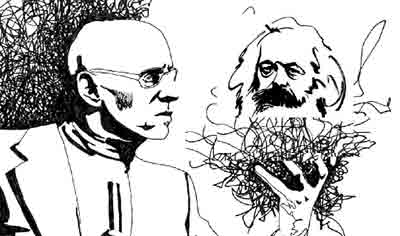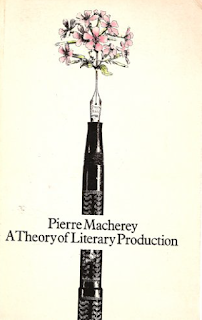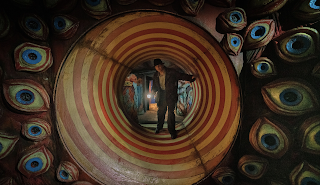What follows is a draft of the translation of the introduction to Franck Fischbach's
La Production des hommes: Marx avec Spinoza which will be published by Edinburgh University Press as
Marx with Spinoza: Production, Alienation, History. Posted here in preparation for my forthcoming event with the
Marx Education Project, and as part of the process of editing it.
The relation of Marx with Spinoza has often been driven—most notably with respect to Althusser and the Althusserian tradition—by the project of “giving Marxism the metaphysics that it needs,” according to an expression used by Pierre Macherey specifically with respect to Althusser. The intention was laudable, but times having changed, our project can no longer be exactly that. We begin from the idea that the philosophy specific to Marx or the specifically Marxist philosophy is still largely unknown, that Marx as a philosopher is still largely and for the most part unknown. For a long time this was due reasons largely external to the thought of Marx: initially it was due to the urgency of militant practice, then it remains thanks to theme of the rupture with philosophy that is expressed by the eleventh Thesis on Feuerbach or in The German Ideology, any reading of Marx that is resolutely philosophical was suspected as being ideological. Then on the verge of orthodoxy, several authors—and not insignificant ones—both at the heart of the history of Marxism , and outside of it , have maintained that there is a critique of philosophy in Marx , this critique would still be a determinant practice of philosophy. However, the ignorance of “Marx’s philosophy” equally lies in reasons that internal to Marx’s work: the critical relation that Marx enters with philosophy implies in effect that the latter appears in terms of disconcerting new features, which are not those of a doctrine expressed as such (Marx, who never completed any of his grand works, always refused any dogmatic or systematic presentation of his thoughts), but are also not that of fragments. Neither systematic, nor fragmentary, philosophy with respect to Marx, appears diluted, omnipresent but always mixed and everywhere combined with elements of the discourse of history, of political economy, but also the sciences of nature and literature. It is not necessary to reconstruct or reconstitute the philosophy of Marx: that would suggest that it is only present in a fragmentary and dispersed state, and that it is necessary to reassemble and unify—which would lead to dogmatic and systemic presentation that is perfectly alien to the Marxist practice of philosophy.





























